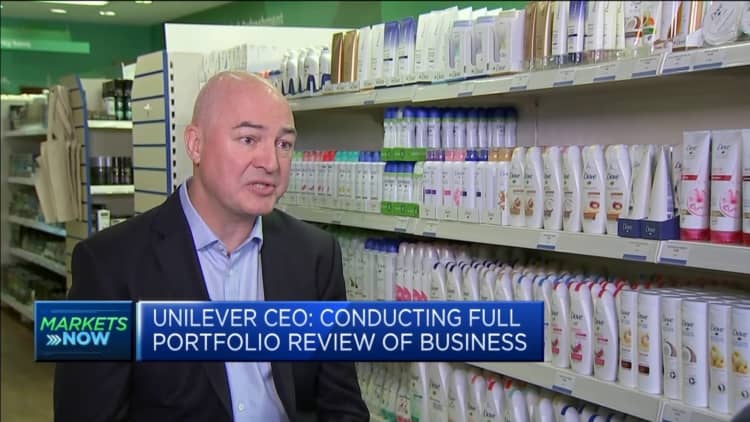Consumer packaged goods giant Unilever said Wednesday that it's updating its principles for marketing food and beverages to children, including that it will no longer target ads to children under 12, amid widespread concerns about childhood obesity.
The company, whose portfolio includes Ben & Jerry's and Klondike, said the change will apply to all food and beverage products, and defines marketing communications as TV and radio ads, digital activity, social media and digital ads, apps, PR materials, online games and other communication like product placements. The company said it previously had allowed ads for products that met its "Highest Nutritional Standards," which take into consideration factors like sodium, saturated fat and sugars.
In a blog post, Unilever said a key reason for the new principles is the fact that the World Health Organization calls childhood obesity one of the most serious public health issues of the 21st century.
"It's a move designed to help parents, caregivers and kids make informed choices about the food and drinks they buy, and to address the rise of social media, and the vast increase in products on sale," the post said.
Unilever also said it will not direct any social media at kids under 13. It will also restrict its influencer policy, not using influencers under the age of 12, nor influencers who primarily appeal to children under 12. (Major social networks like Facebook and Instagram don't allow users under the age of 13.)
Unilever said the changes in targeting take into consideration both the content of the advertising and its placement. The company said for television and other measurable media, it will not run ads where children age under 12 represent over 25% of the audience. For the content, it said creative execution marketing communications should not be designed to target kids under 12.
The company added that it will only show kids under 12 in its marketing communications if it's for products that meet high nutritional standards or if it's "relevant to the marketing message," like a family activity, it said. "Parents or gatekeepers will always be portrayed in control of the access to a product," the company writes in its policy.
It also said it will limit the use of licensed cartoon characters and of "brand-equity" characters to point-of-sale communications (like in-store displays or ice cream freezers) and will only use them with products that meet its "self-imposed Highest Nutritional Criteria." The company said it previously allowed the use of characters in its marketing communications.
Unilever says it has been applying specific measures for the marketing of food and beverages since 2003 and has adopted those principles since then. The deadline for the new measures is the end of this year.
Other companies have rules around marketing food and beverages to kids. General Mills, for example, says it does not direct any marketing to children under 12 unless it meets "strict nutrition standards." In the U.S., those standards are the ones established by the Children's Food and Beverage Advertising Initiative, General Mills says.



